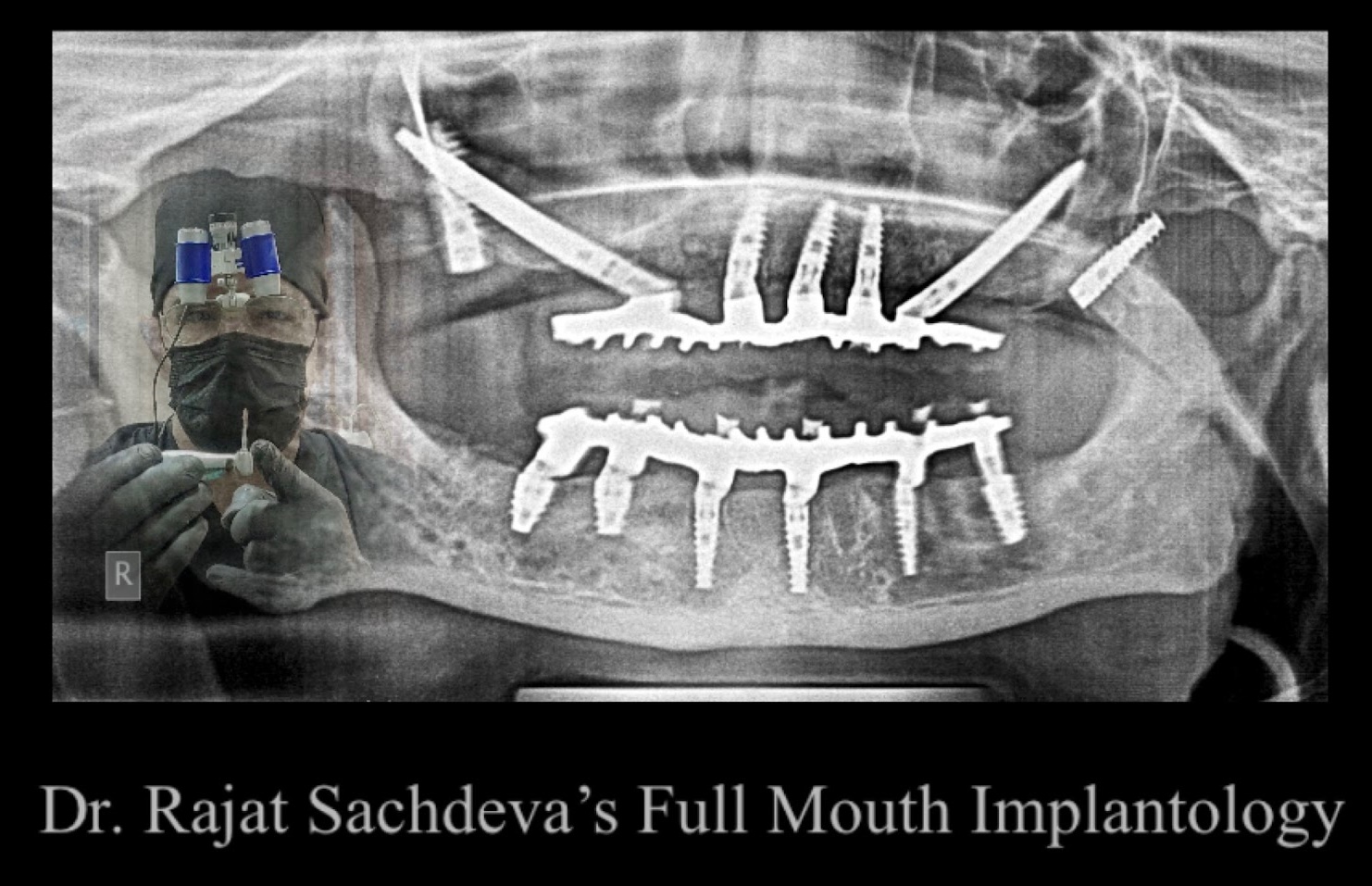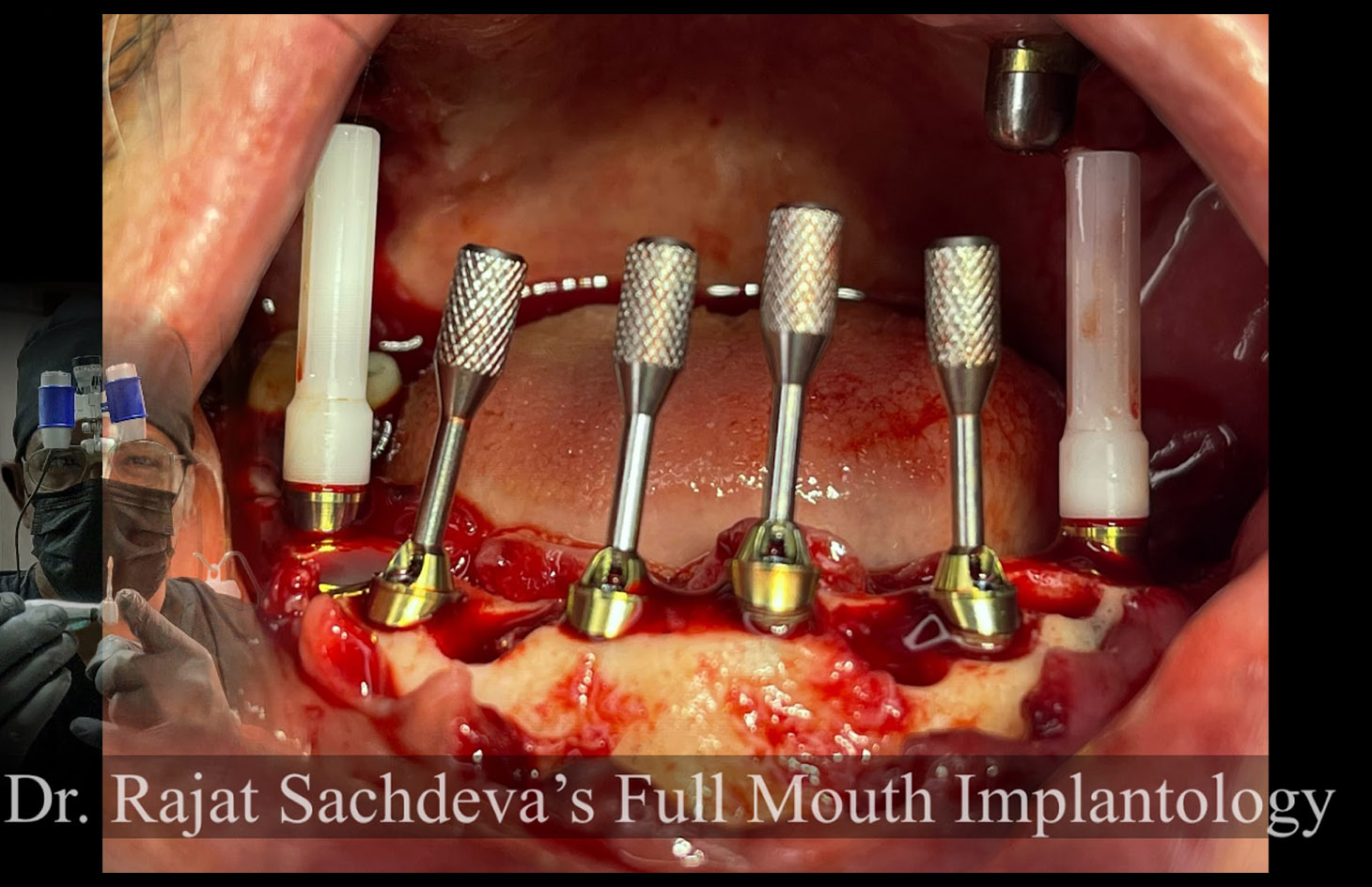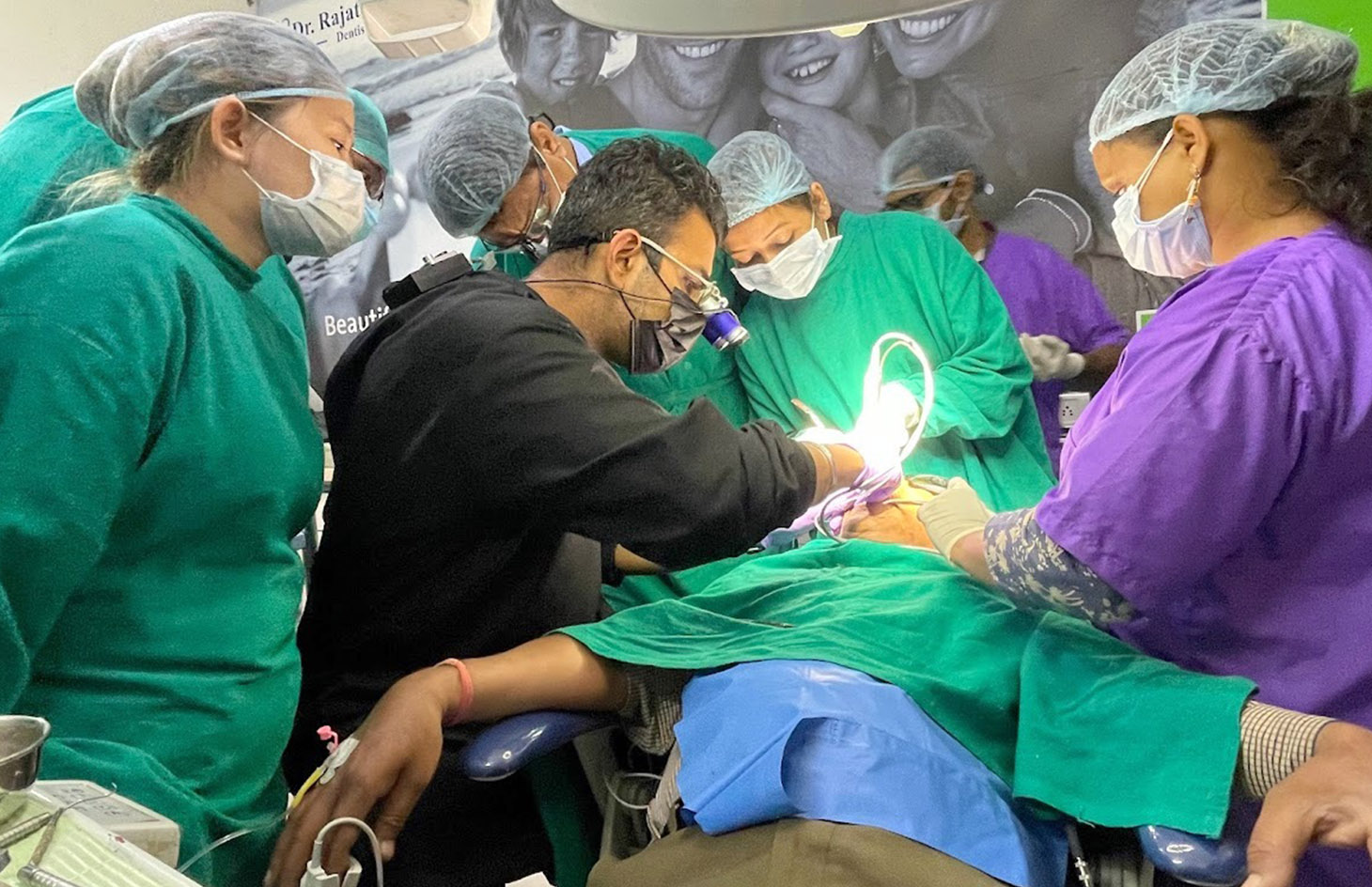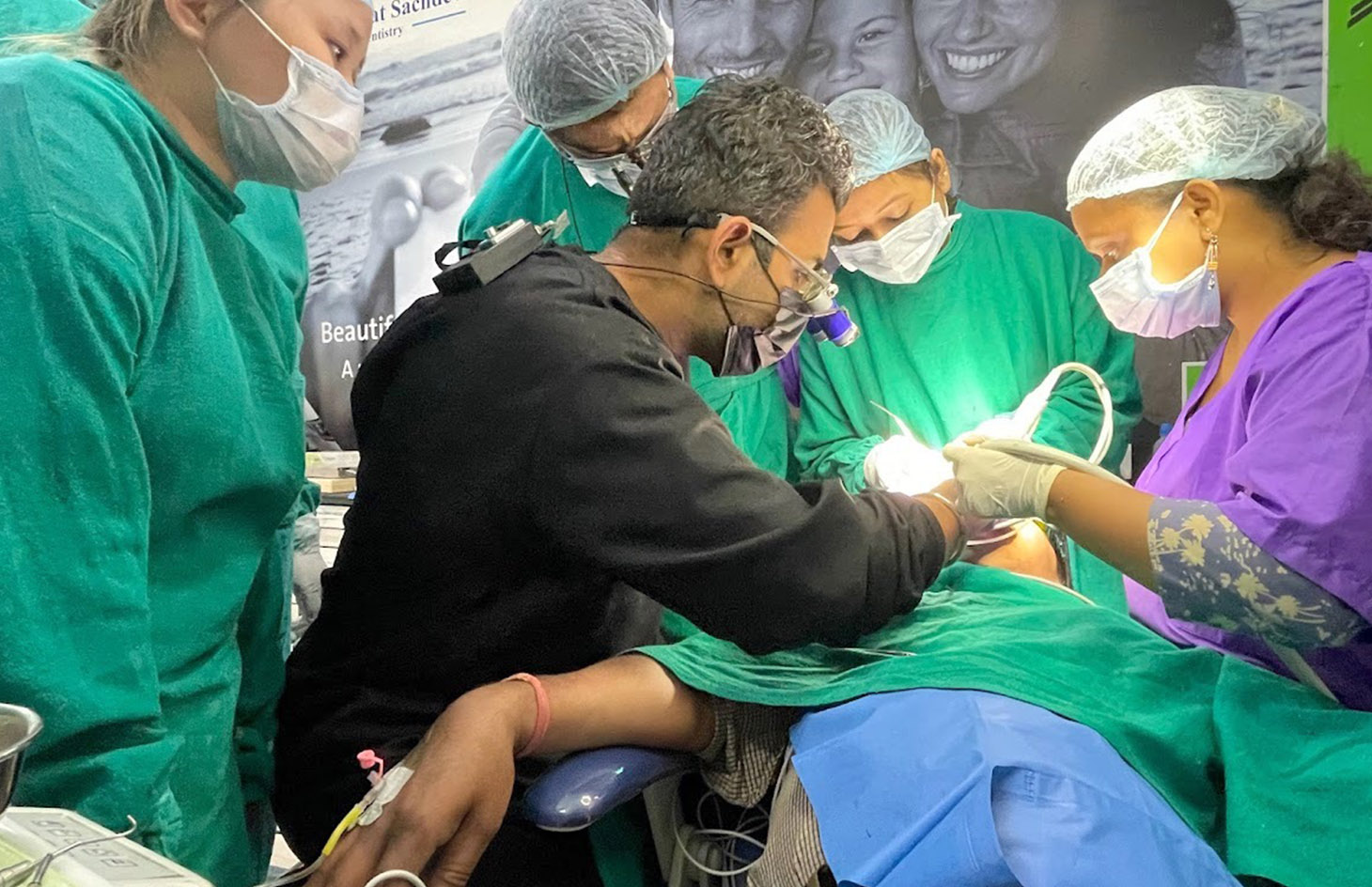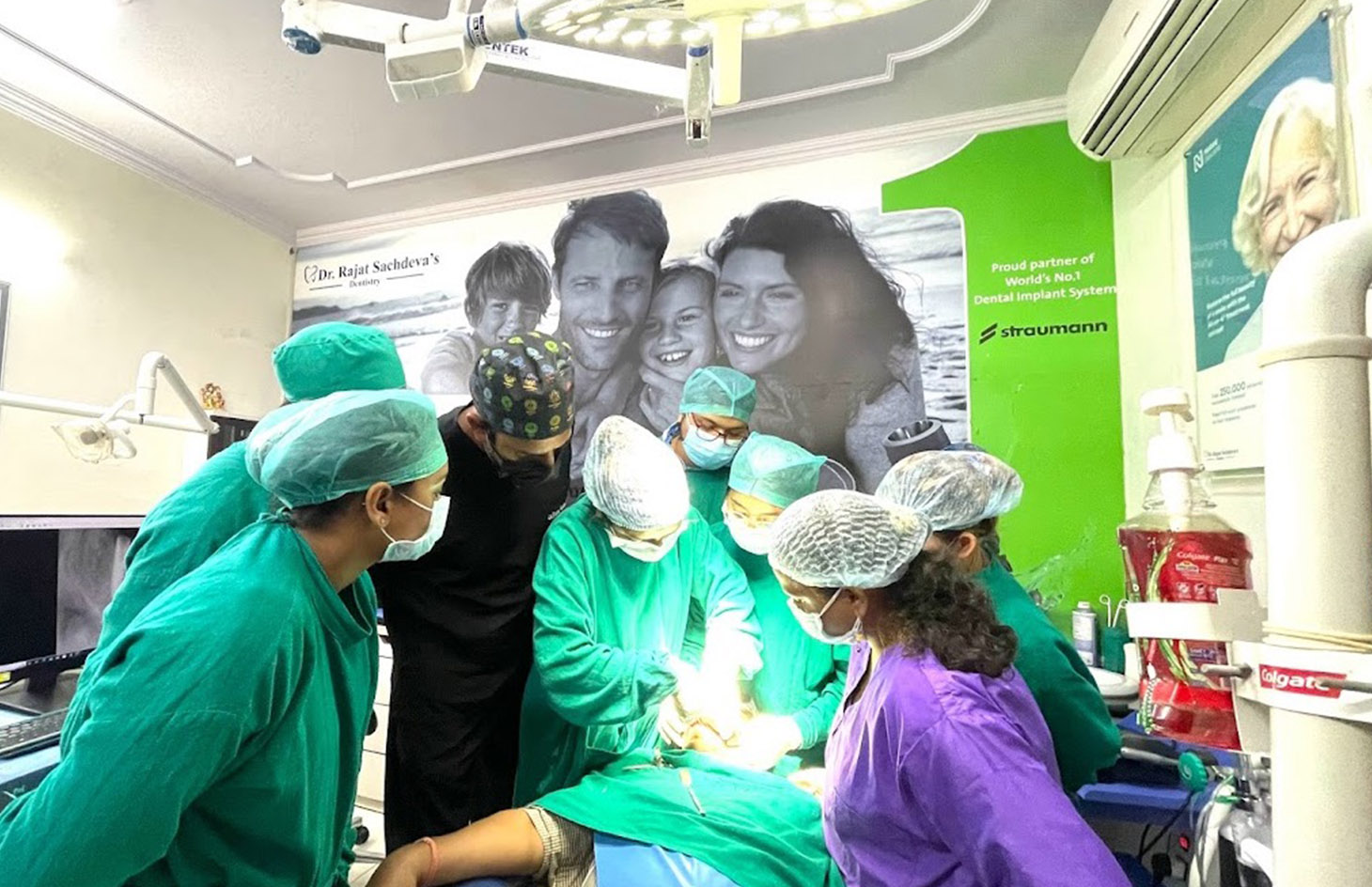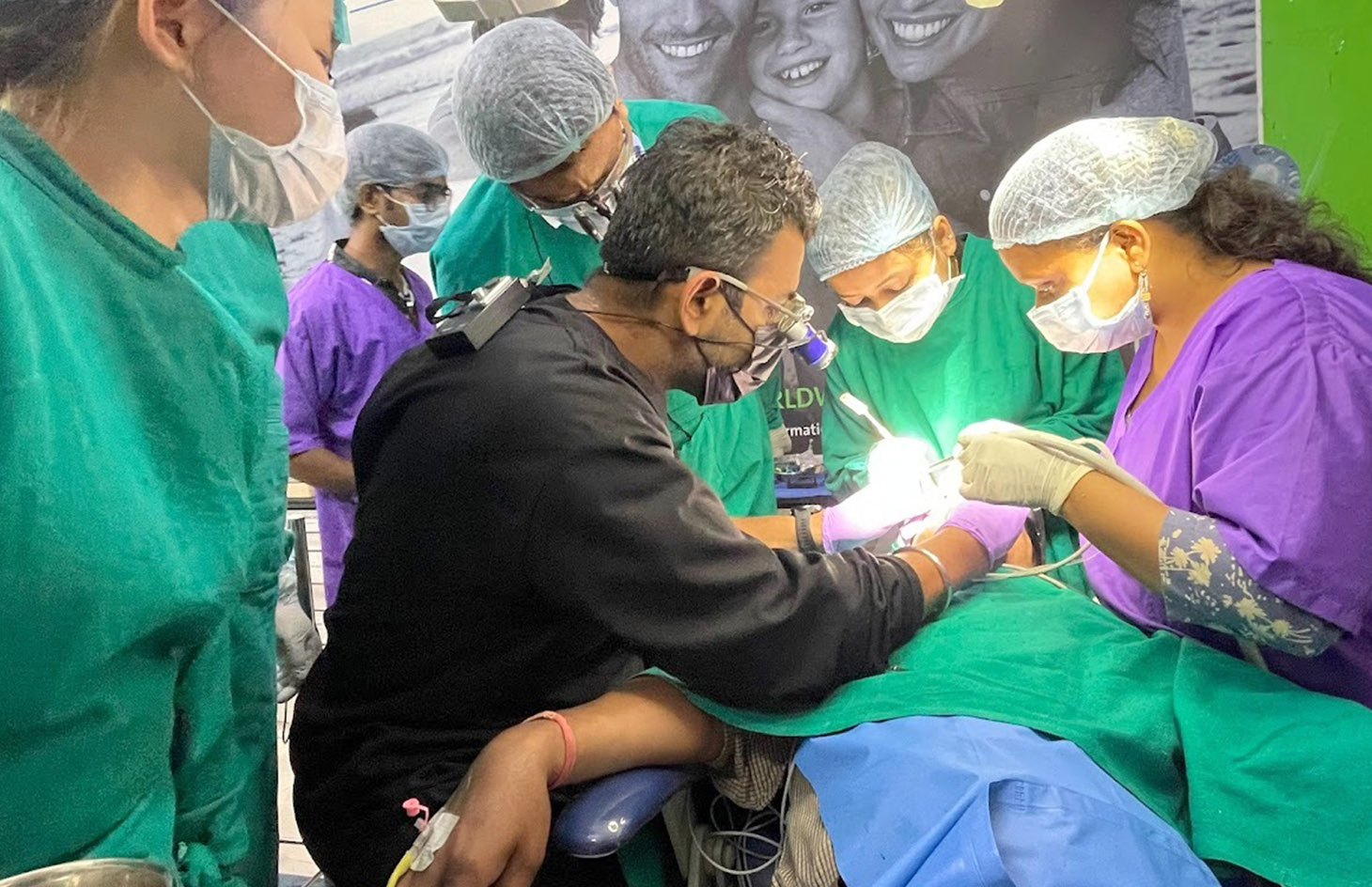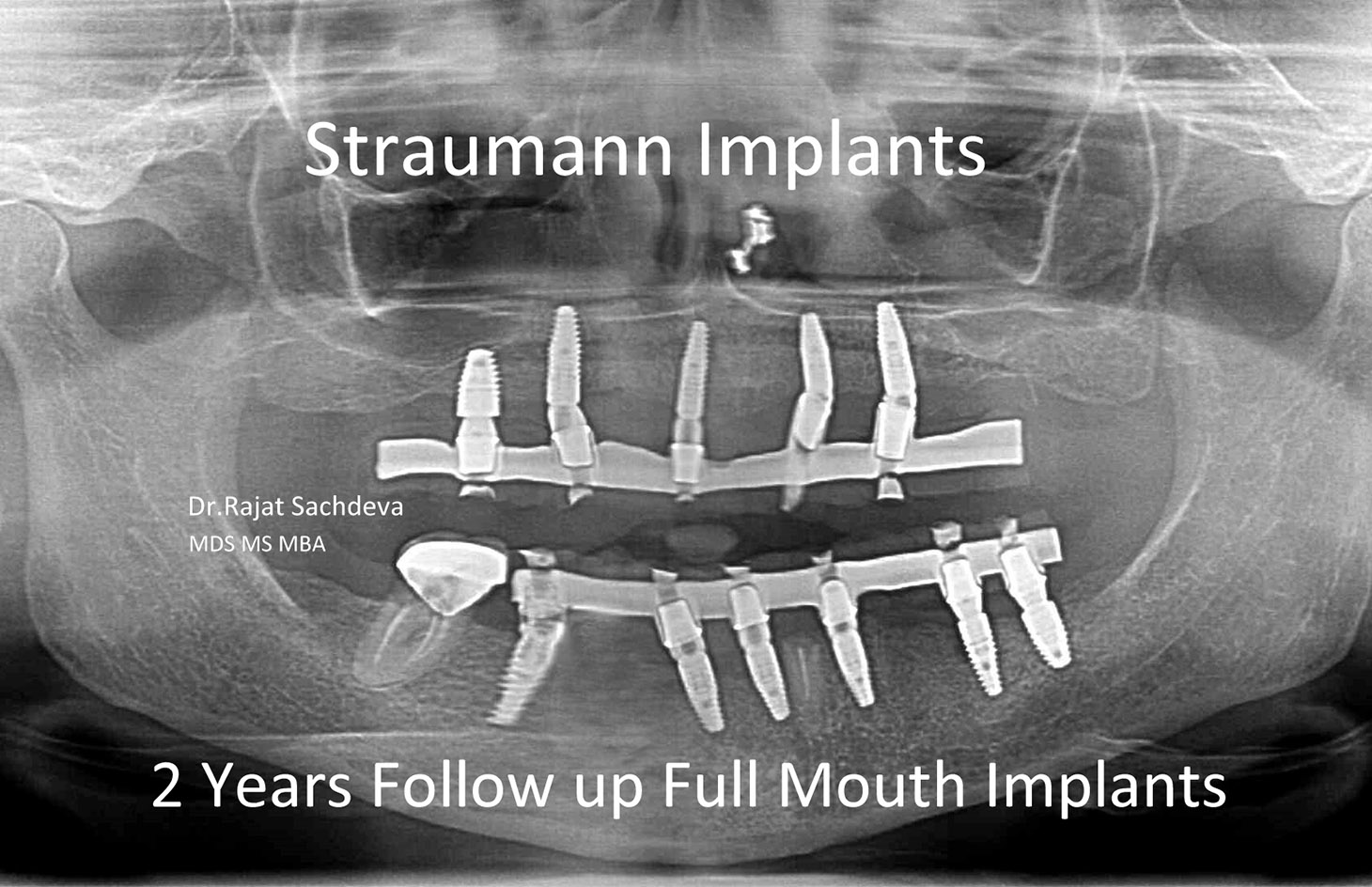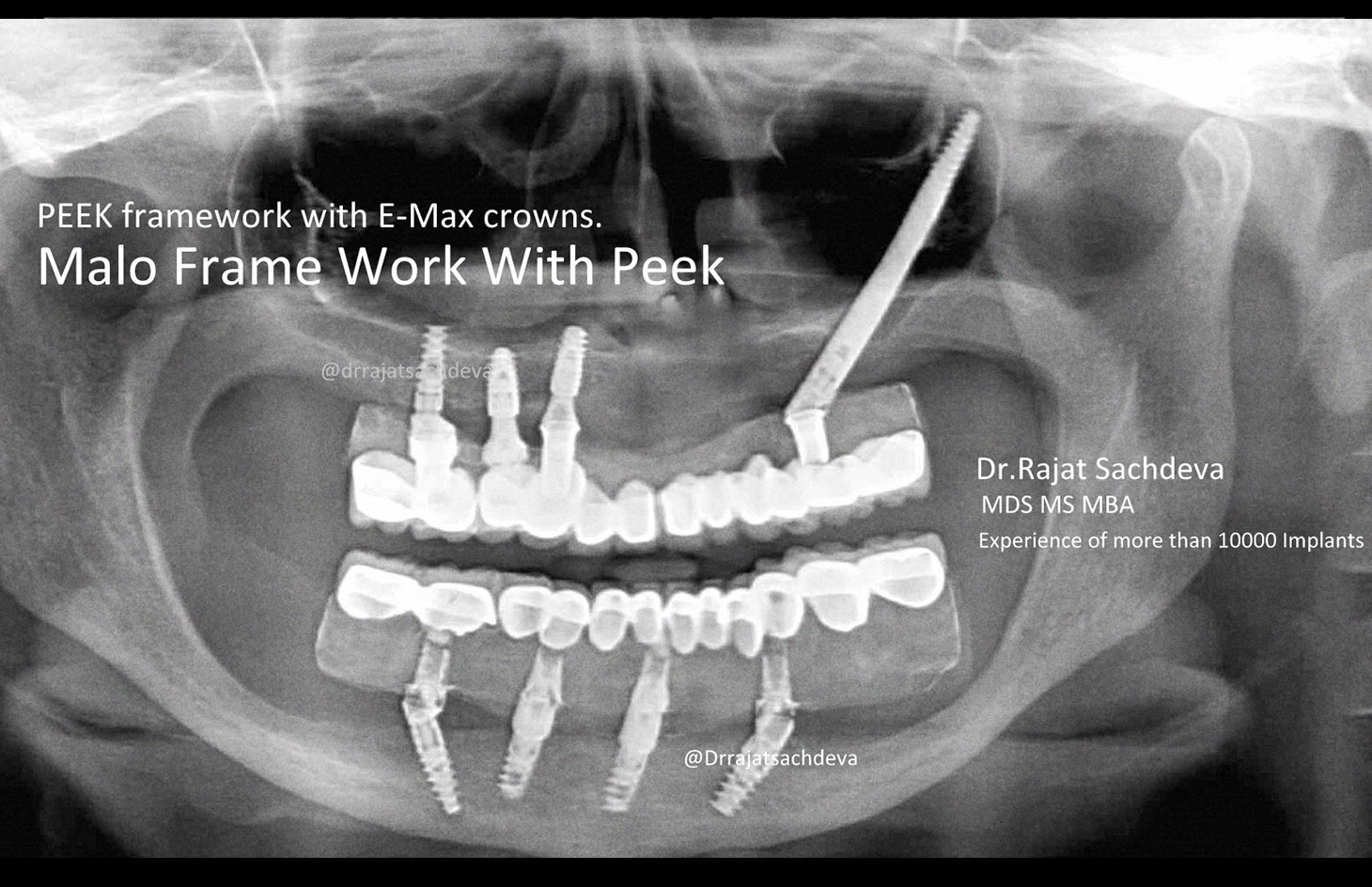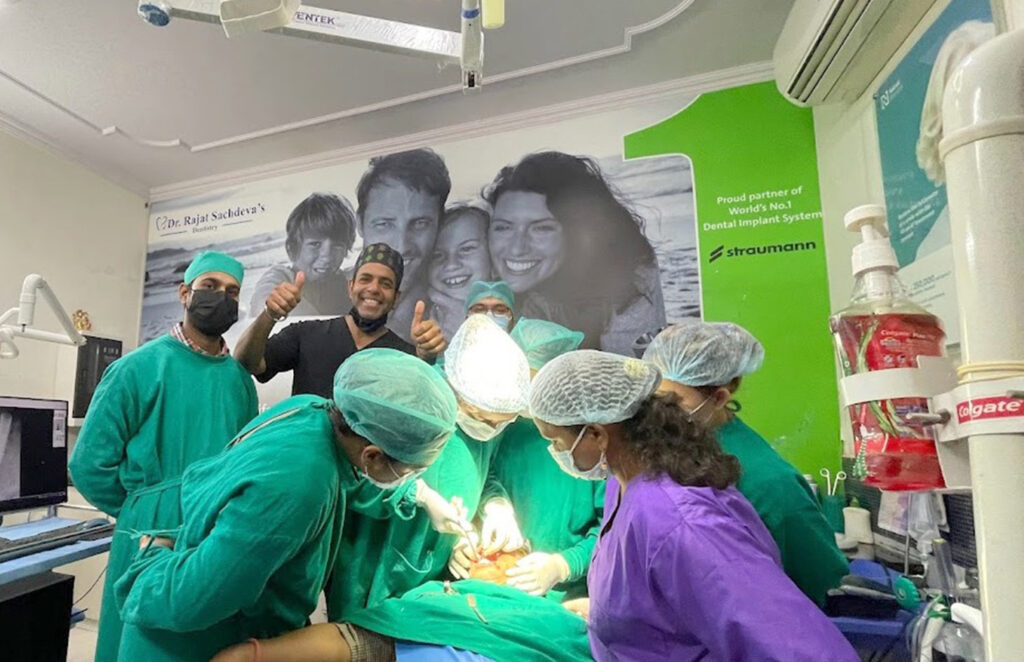
Taking your dental practice to the next level is not as difficult as it may seem. After going through various dental implant courses at Dr. Rajat Sachdeva’s dental institute, you can go back home and begin using your new expertise immediately. You will gain more patients and add a much-needed niche to your practice.
Implants are a safer and more aesthetically appealing alternative to dentures. When patients look forward to getting an implant, they visit a certified professional for treatment. Dental implant courses at our institute give you the right training and path in dentistry. You can expect job stability and financial rewards as well.
We provide various courses on implants wherein you will be learning from highly skilled and experienced professionals in a closely monitored and supervised environment.
Benefits and key features of our implant course
This will not be a typical classroom setting. Here is a look at what you will be doing during your time in an implant course here :
Implant surgery procedure – What all to expect to learn?
Pre-op phase
To start the journey to implants, a comprehensive examination and consultation is performed with the patient. This will include a detailed review of the patient’s dental health and past medical history, as well as x-rays, digital 3D CBCT scans, and a thorough physical examination of the oral cavity. It helps us get a complete understanding of the state of the patient’s dental health, thereby identifying any underlying issues that may need to be addressed or corrected prior to the commencement of the implant procedure.
We follow this pre-operative procedures strictly as it helps us give a clearer picture of the case and plan the treatment accordingly. We also encourage the students to have an in-depth conversation with the patient about what their goals are, and provide guidance on the type of outcome that can be expected once the procedure has been completed. This is an important part of the process in order to ensure that all aspects are given their due consideration. We firmly believe that it is essential for patients to be as informed as possible when making the decision to undergo any major surgical procedure for the benefit of their overall health and well-being.
Surgical phase
To prepare for the start of the surgery, we can either use guided or non-guided approach. For the guided surgery, many different measurements must be taken in order to precisely plan out the placement of the dental implants and design the shape and orientation of the replacement teeth prosthesis. This is done to ensure a perfect fit and optimum comfort for the patient, and provide the greatest stability between the implants and the prosthesis. Bite impressions of both jaws helps us to create molds that will help test the fit and sizing of the various components used in the implant procedure.
The surgery follows a standard procedure sequence, which begins with inserting the implant in to the jaw bone. The entire implant treatment depends on a dynamic process known as OSSEOINTEGRATION. It is nothing but the time dependent healing process whereby clinically asymptomatic rigid fixation of implant fixtures is achieved and maintained in bone during functions. It forms the basis for the success of implants.
Armamentarium needed for the surgery
Training with physiodispenser
For an all-round training in implants, it is crucial to use physiodispenser during implant applications. The main application of a physiodispenser is to prepare the slot for the placement of implants.
The physio-dispenser has many important features like rotating without stopping at very low speed due to its engine structure and at the same time, not overheating the jaw bone due to constant irrigation. In addition, it can be used in water pressure adjustment, speed adjustment, ability to turn in both directions, torque adjustment and some other surgical procedures. Preferably, the implant can be placed in the recess with a physiodispenser. Another benefit of this instrument is that every part is almost every part of the dispenser can be sterilized, which prevents spreading of infection into the operation wound.
We at Dr. Rajat Sachdeva’s dental institute makes sure that each student has a thorough knowledge on how to use a physiodispenser and its importance in the placement of an implant.
Immediate v/s delayed implants: When to and When not to – Busting Myths
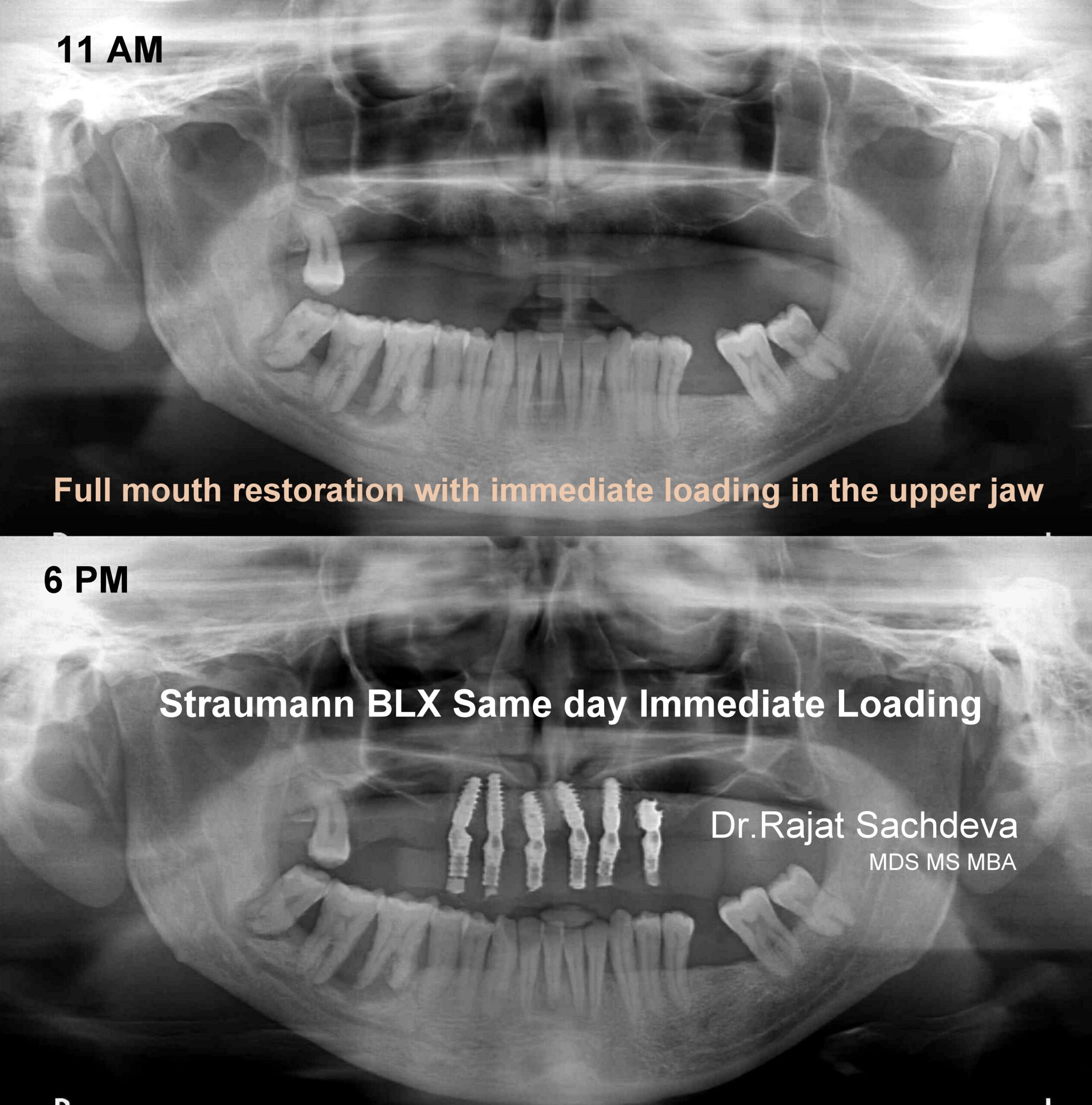
Immediate implant placement is when an implant is placed at the same time as the natural tooth is extracted i.e. placement of implants in fresh sockets. Immediate loading involves the placement of a restoration within 48 hours of implant placement. Delayed implants are inserted 3-6 months after the extraction which provides a good quality bone.
Educating patients on prevention of implant failure
Dental implants can fail for a variety of reasons, but the most common – and most preventable – are infection and bone loss. The best way to keep the implants healthy is to practice good oral hygiene.
- Brush and floss twice daily, and use an alcohol-free antibacterial mouthwash.
- Avoid hard candy and other foods that are rough on teeth.
- Visit your dentist every three to six months to ensure that any issues that do arise can be treated early.
